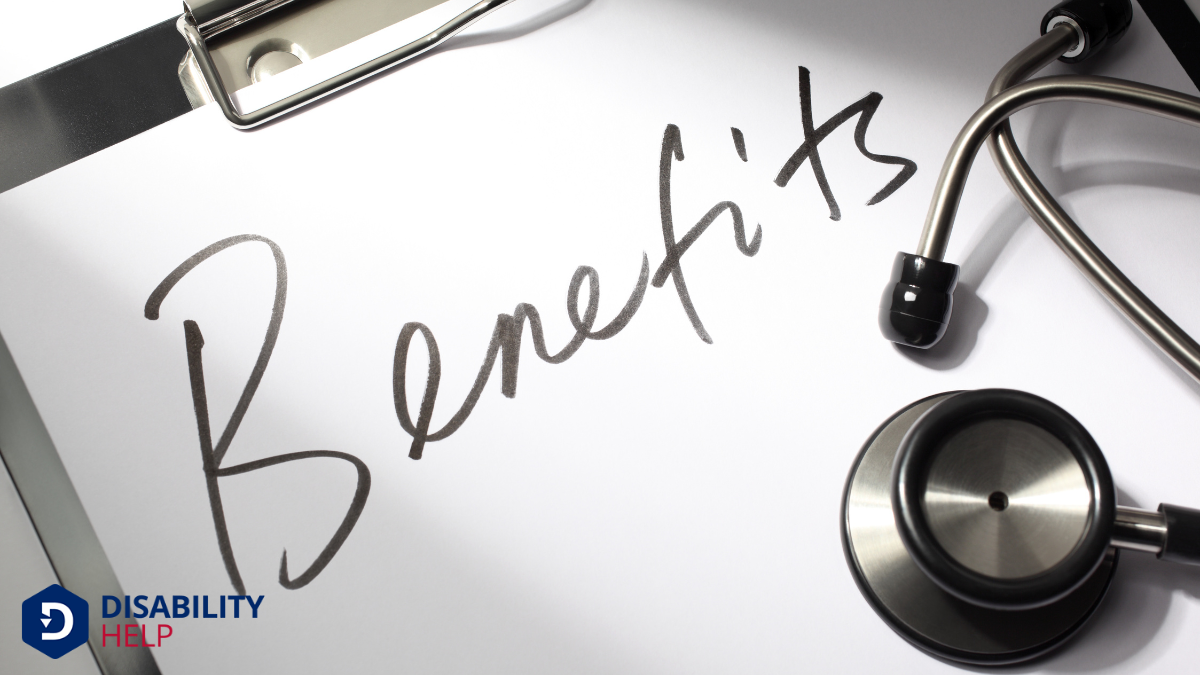In Maryland, workers' compensation supports employees who get injured or sick due to job-related duties. We verify eligibility by confirming you're classified as an employee and your employer has the necessary insurance. Report the injury to your employer swiftly to start the claims process, which involves filing with the Maryland Workers' Compensation Commission. Benefits include medical treatment and wage replacement. You can choose a healthcare provider, but you need to follow your treatment planA detailed plan developed by healthcare professionals to treat a specific health condition, outlinin.... Disputes can be resolved through mediation or hearings if needed. Employers must keep accurate records and communicate transparently. There's much more to navigate than just that!
Key Takeaways
- Maryland requires employers to have workers' compensation insurance to protect employees from job-related injuries and illnesses.
- Employees must report injuries within ten days and occupational diseases within one year to claim benefits.
- Workers' compensation benefits include medical coverage, wage replacement, and potential vocational rehabilitationServices that help individuals with disabilities prepare for, obtain, and maintain employment..
- Disputes are resolved through mediation or hearings managed by the Maryland Workers' Compensation Commission (WCC).
- Employers must maintain accurate records and cooperate with WCC investigations and hearings for compliance.
Eligibility Requirements
To be eligible for workers' compensation in Maryland, we need to confirm that the injury or illness occurred as a direct result of our job duties. This means we must show that the incident happened while performing work-related tasks. It's vital that the event occurs during our employment, whether on the premises or while fulfilling job responsibilities elsewhere.
Furthermore, we should be classified as employees, not independent contractors. This distinction is important because independent contractors aren't typically covered under workers' compensation laws. Our relationship with the employer and how they control our work often determines this classification.
Timing also matters. We must report the injury or illness to our employer promptly. Maryland law requires that we notify them within ten days of the injury. Delays in reporting can jeopardize our claim. If it's an occupational disease, we have a year to notify.
Lastly, it's essential that our employer has workers' compensation insurance. Most Maryland employers are required to have this, but there are exceptions. Verifying our employer's coverage confirms we're in a position to claim benefits if needed.
Types of Benefits

When it comes to the types of benefits available through Maryland workers' compensation, we can expect several key forms of assistance designed to support us during recovery.
First, there's medical coverage, which guarantees that our necessary treatments, from doctor visits to surgeries, are covered. This benefit is essential as it removes the financial burden of healthcare costs during our recovery.
Next, we've wage replacement benefits. If we're unable to work due to our injury, temporary total disability benefitsFinancial assistance provided to individuals who are unable to work due to a disability, such as Soc... can replace a portion of our lost wages. For those who can work part-time or light duty, temporary partial disability benefits may apply, covering the difference between our previous earnings and current pay.
Should our injury result in permanent impairmentA loss or abnormality of a body structure or function, whether physical, mental, or sensory, often a..., permanent partial disability or permanent total disability benefits come into play. These provide compensation based on the extent of our permanent condition and its impact on our ability to work.
Additionally, vocational rehabilitationThe process of helping individuals with disabilities achieve and maintain their optimal physical, se... is available, offering training or assistance to help us return to work, possibly in a new role if needed.
Finally, death benefits are provided to dependents if a work-related injuryAn injury that occurs in the course of employment, potentially leading to temporary or permanent dis... results in a worker's death, guaranteeing financial support for the family.
Filing a Claim
Understanding the types of benefits we might receive is only part of the process; knowing how to file a claim is equally important. First, we need to report our injury to our employer immediately. In Maryland, it's essential to notify them in writing within 10 days of the incident. This step guarantees that our employer is aware of the situation and can begin their internal procedures.
Next, we must submit an official claim to the Maryland Workers' Compensation Commission (WCC). We can do this by completing the Employee Claim Form C-1, which is available on the WCC's website. It's critical to provide accurate information about our injury, employment, and any medical treatments received. Attaching supporting documents, like medical reports, can help substantiate our claim.
Once our claim is submitted, the WCC will review it to determine eligibility. We should keep copies of all documents and correspondence for our records. Staying organized can aid in addressing any follow-up questions or additional information requests.
Finally, it's wise to reflect on consulting with a workers' compensation attorney. They can offer guidance and safeguard our rights throughout the process. This approach helps us navigate any complexities we might encounter.
Medical Treatment Process
A significant aspect of the workers' compensation process is the medical treatment we receive after an injury. Once we've reported the injury to our employer and filed a claim, it's important to focus on getting the right medical care.
In Maryland, we have the freedom to choose our own healthcare provider, so we should select someone who understands our specific needs and can manage our recovery effectively.
Once we've chosen a doctor, we need to attend all appointments and follow their treatment plan closely. This not only helps us recover but also provides necessary documentation for our workers' compensation case. Our medical records play a fundamental role in establishing the extent of our injury and the required treatment.
It's important to keep our employer and insurance company informed about our medical progress. They may request regular updates through medical reports from our doctor.
Additionally, we might be required to attend an independent medical examination (IME) arranged by the insurance company. This examination is to confirm our injury's nature and severity.
Staying proactive and informed guarantees we receive the medical care we need, facilitating a smoother recovery and workers' compensation process.
Resolving Disputes

When disagreements arise in Maryland workers' compensation claims, understanding the dispute resolution process is essential.
We'll explore how mediation and hearings offer pathways to address and resolve these conflicts efficiently.
Dispute Resolution Process
Maneuvering the dispute resolution process in Maryland's workers' compensation system can be challenging, but it's vital for ensuring fair outcomes. When disagreements arise, whether over benefit amounts, medical treatments, or eligibility, understanding the steps involved helps us navigate the system efficiently.
First, when a dispute emerges, it's essential to gather all relevant documentation and evidence. This includes medical reports, accident details, and any correspondence with the employer or insurer. Having a thorough file allows us to present a clear case.
Next, we should file a formal claim with the Maryland Workers' Compensation Commission. This initiates the official process where our concerns are reviewed. Clarity in our claim can make a significant difference in how the case proceeds.
Communication is key. Keeping open lines with the employer and insurer can sometimes resolve issues without further escalation. If direct communication doesn't lead to a resolution, the next step involves requesting an informal conference with the Commission. This is a chance to discuss the dispute in a less formal setting and potentially find a solution.
We must remember that understanding our rights and responsibilities within this process empowers us to advocate effectively for our needs. Moving forward, it's important to stay informed and proactive.
Mediation and Hearings
To resolve disputes within Maryland's workers' compensation system, mediation and hearings serve as critical avenues. When disagreements arise, whether about benefits, treatment, or other issues, understanding these processes helps us navigate effectively.
Mediation offers a collaborative environment where both parties can discuss their differences with the help of a neutral mediator. This setting encourages open dialogue and often leads to mutually agreeable solutions without the need for a formal hearing.
However, when mediation doesn't yield results, a hearing before the Maryland Workers' Compensation Commission (WCC) may become necessary. During a hearing, both sides present evidence and arguments, and a commissioner makes a binding decision. Understanding the steps involved can ease anxieties and prepare us for what lies ahead.
Here's what typically happens:
- Filing a Claim: Before any mediation or hearing, a claim must be filed with the WCC. This initiates the formal process.
- Mediation Session: Once a claim is filed, parties may opt for mediation to attempt to resolve issues amicably.
- Formal Hearing: If mediation fails, a hearing is scheduled where evidence is presented and the commissioner decides.
Navigating disputes can be challenging, but knowing these steps helps us approach them with confidence and clarity.
Employer Responsibilities
Amidst the complexities of Maryland's workers' compensation system, employers hold a pivotal role in ensuring compliance and safeguarding their workforce.
We must understand that, as employers, it's our duty to provide a safe working environment and have workers' compensation insurance. This insurance is vital because it protects both employees and us from the financial burdens of workplace injuries.
When an injury occurs, we're responsible for guiding our employees through the claims process. First, we need to report the injury to our insurance provider immediately. Delays can complicate the process and potentially lead to penalties.
Then, we should provide the injured employee with a claim form and any necessary information to proceed with their claim smoothly.
We also have to maintain accurate records of the incident and any communications related to the claim. This documentation is essential for ensuring transparency and accountability.
Additionally, we must cooperate with the Maryland Workers' Compensation Commission during any investigations or hearings.
Conclusion
In traversing Maryland's workers' compensation system, we've explored eligibility, benefits, and the claims process. Understanding medical treatment and dispute resolution is essential, and knowing employer responsibilities can make a difference. We hope this guide clarifies the steps involved, empowering you to take the necessary actions if you're ever faced with a work-related injury. Remember, you're not alone in this process, and resources are available to support you every step of the way.






